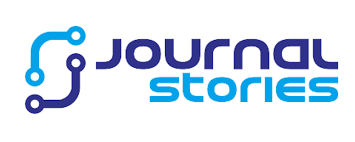IMPLEMENTATION OF TERM DEPOSIT GUARANBINDING AT PT. BANK MANDIRI (PERSERO) TBK. MANDIRI PALEMBANG SUPPORT BRANCH OFFICE REGIONAL OFFICE II
DOI:
https://doi.org/10.61397/ays.v1i2.103Keywords:
Collateral, term deposits, bankingAbstract
The purpose of this research is to determine the implementation of the binding of term deposit pledge guarantees on PT. Bank M Andiri (persero) T bk. Mandiri Palembang sub-branch office Regional Office I. This researcher used a juridical-empirical research methodology with literature studies and field studies, specifically through an approach to statutory regulations and other legal materials related to the problem as well as through observations and interviews with related parties, including related officials. credit agreement at PT. Bank Mandiri (Persero) Tbk. Mandiri KCP Palembang Regional Office II The results of this research indicate that the implementation of binding collateral for term deposits at PT. Bank Mandiri (Persero) Tbk. Mandiri KCP Palembang Regional Office II by implementing binding guarantees for term deposit pledges at PT. Bank Mandiri (Persero) Tbk. was carried out in five stages, namely the first stage by binding credit as the main agreement where it is stated that the credit guarantee is a deposit. The second stage, namely binding the deposit, is carried out by making a deed of pledge agreement between the deposit owner and the bank. The third stage is handing over the guaranteed deposit slip to the pawn holder, in this case, the bank. In the fourth stage, together with the third stage, the deposit owner or guarantor must authorize the pawn holder or bank to disburse the deposit in the event that the deposit owner or debtor defaults. In the fifth stage, the creditor, as the recipient of the deposit pledge, will block the collateral deposit in accordance with the terms of the credit agreement. This means that as long as the credit from the main agreement has not been repaid, the collateral deposit will be blocked.
Downloads
References
A. Muri, Y. (2016). Quantitative, Qualitative & Combined Research Methods . Prenada Media.
Anas, AT, & Budianto, AA (2023). ANALYSIS OF FRANCHISE BUSINESSES FROM AN ISLAMIC ECONOMIC LAW PERSPECTIVE. ANAYASA : Journal of Legal Studies , 1 (1), Article 1. https://doi.org/10.61397/ays.v1i1.2
Awwalin, P. (2015). OPPORTUNITIES, CHALLENGES AND PROSPECTS FOR INDONESIAN SHARIA BANKING IN FACING THE 2015 ASEAN ECONOMIC COMMUNITY (AEC) COMPETITION. AKUNESA Accounting Journal , 3 (2), 1–22.
Ismy, H. (2022). ORGANIZATIONAL CULTURE AND EMPLOYEE PERFORMANCE AT SHARIA PEOPLE'S FINANCING BANK MITRA AGRO BUSINESS BANDAR LAMPUNG [Diploma, STATE ISLAMIC UNIVERSITY OF RADEN INTAN LAMPUNG]. http://repository.radenintan.ac.id/20416/
Junaedi, IWR, Damayana, IW, Waruwu, D., & Utama, IGBR (2021). The Role of Village Credit Institutions in the Development of Balinese Social Entrepreneurship (SSRN Scholarly Paper 3818594). https://papers.ssrn.com/abstract=3818594
Mahendra, T., & Firmansyah, A. (2019). EVALUATION OF DISCLOSURE OF DERIVATIVE HEDGING TRANSACTIONS IN BANKING SUB-SECTOR COMPANIES IN INDONESIA . 3 .
Reinaldo, R. (2007). ANALYSIS OF COMPLIANCE WITH THE IMPLEMENTATION OF GAAP 2001 (SFAS No.133) VERSUS PSAK No. 55 BY NON-FINANCIAL ISSUERS IN INDONESIAN CAPITAL MARKETS [Widyatama University]. http://repository.widyatama.ac.id/xmlui/handle/123456789/7061
Sutriyanti, S. (2023). CREATIVE ECONOMIC ARRANGEMENTS TO DEVELOP NEW ECONOMIC RESOURCES | Sutriyanti | Study . https://doi.org/10.22212/kajian.v22i4.3915
Usman. (2013). No Title .
Utomo, LL (2000). DERIVATIVE INSTRUMENTS: AN INTRODUCTION TO CORPORATE RISK MANAGEMENT STRATEGIES. Journal of Accounting and Finance , 2 (1), 53–68. https://doi.org/10.9744/jak.2.1.pp
Yamin, F. (2017). The Influence of Organizational Culture and Organizational Commitment on Employee Performance with Employee Job Satisfaction as an Intervening (Case Study at Bank Mega Branch Trans Studio in Makassar) . https://dspace.uii.ac.id/handle/123456789/5305
Downloads
Published
How to Cite
Issue
Section
License
Copyright (c) 2024 Ananda Nurhayati; Abdul Hamid Usman, Yonani Hasyim

This work is licensed under a Creative Commons Attribution-NonCommercial-ShareAlike 4.0 International License.








